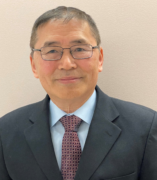
Xiao-Di Tan, MD
Professor of Pediatrics (RT, tenured)
Director of CPTRE
Department of Pediatrics
Email:
Related Sites:
About
Dr. Xiao-Di Tan's research team has long standing interests in mechanisms underlying inflammation in the gastrointestinal (GI) and liver systems. Complex dialogues occur among intestinal microbes, epithelial cells, and cells in the lamina propria. This understanding has sparked our GI research interest in dissecting how these “dialogues” regulate homeostasis, inflammation, and regeneration in the gut and beyond. Leveraging cutting-edge and multidisciplinary approaches, Dr. Tan's research team has established and sustained a program supported by extramural funding to investigate how communications within the intestinal mucosa govern homeostasis, inflammation, and wound healing in the gut. Dr. Tan's laboratory focuses on addressing fundamental aspects of gastrointestinal (GI) research, including (1) microbiome colonization and mucosal integrity, and (2) understanding the interplay between different cell types in vivo that regulates wound healing and regeneration in the gut and beyond. In Dr. Tan's ongoing projects, the aim is to explore whether and how gut dysbiosis-triggered dialogues between gut commensal microbes and the intestines influence gene-environment interactions in the gut mucosa, contributing to the pathogenesis of necrotizing enterocolitis (NEC). Additionally, Dr. Tan is investigating how intestinal tissue regeneration is orchestrated during intestinal inflammation using comprehensive in vivo and in vitro approaches. Our work will enhance the comprehension of GI inflammation and unveil new therapeutic pathways for addressing inflammation-associated intestinal disorders, exposing novel mechanisms governing communication between gut microbes and the mucosa in infants. As for Dr. Tan's liver research interest, Dr. Tan is delving into the mechanisms underlying the regulation of dialogues among liver cells, pivotal in liver regeneration during inflammation. In the long term, Dr. Tan aspires to concentrate our research on these two areas and elucidate the molecular mechanisms through which communication between commensal microbes and gut and liver cells regulates inflammation and tissue regeneration.